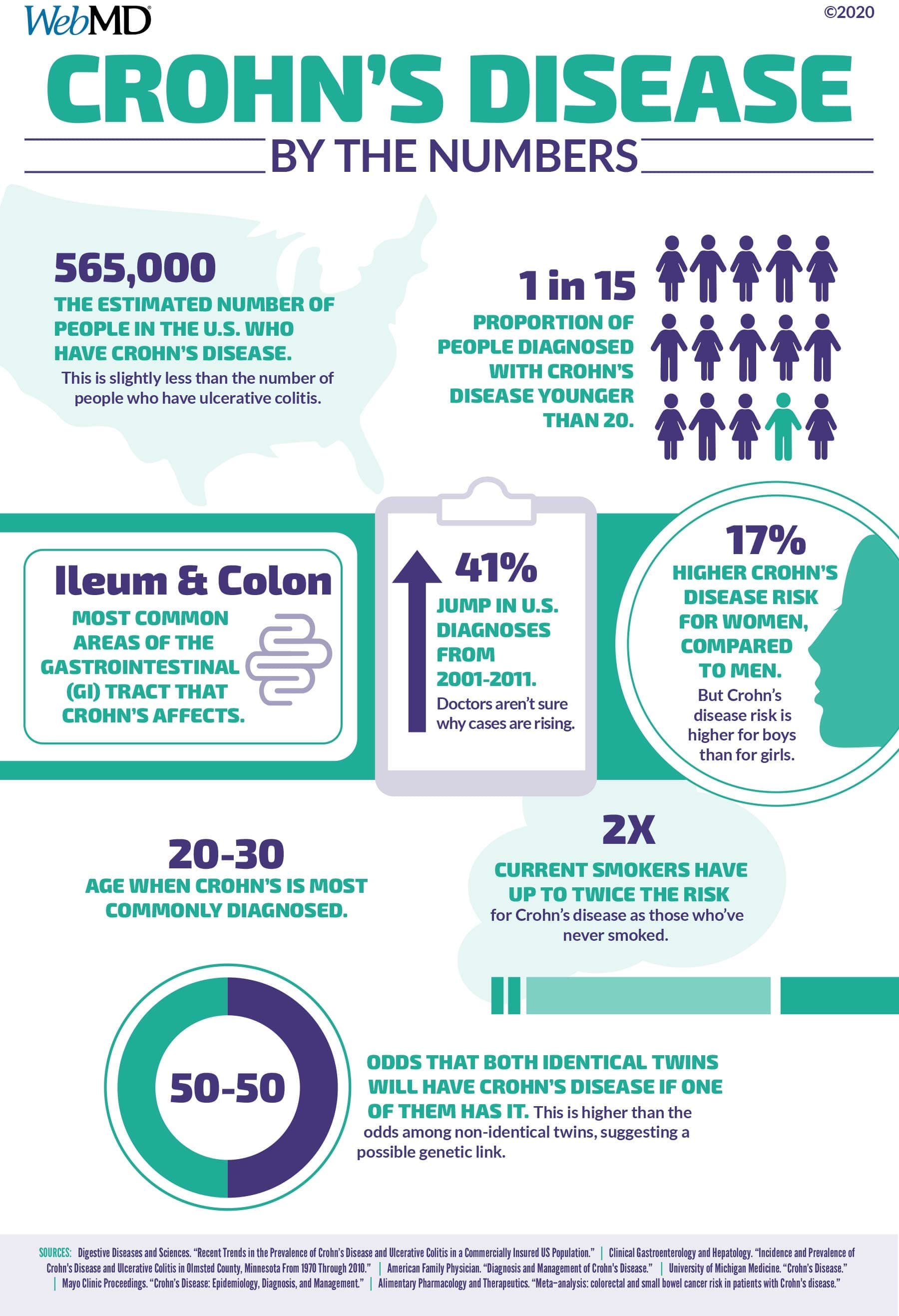Crohn's disease can be a frustrating cycle of diarrhea, belly cramps, and constipation. There's still a lot we don't know about this long-lasting inflammatory disease. But for the 3 million Americans living with Crohn's, the latest research sends a message of hope.
Scientists are getting a better understanding of what triggers Crohn's disease and how diet can make it worse (or better). They're also studying new ways to find, track, and treat it.
Predicting and Preventing Crohn's Disease
In their search for ways to prevent Crohn's, researchers have looked at everything from diet to things in the environment.
A typical "Western" diet, high in calories, saturated fat, and sugar, increases inflammation in your gut. And inflammation could trigger bowel diseases. This type of diet also throws off the gut microbiome. That's is a careful balance of bacteria and other tiny organisms found in your intestines.
A Harvard University study found that people who ate lots of foods linked to inflammation were at higher risk of getting Crohn's. These foods include processed meat, sweets, and refined grains like white bread.
Early research hints that fructose, a type of sugar often found in sweetened drinks and processed foods, might be a problem. A study in mice found that a high-fructose diet could make symptoms of inflammatory bowel diseases (IBD) like Crohn's worse.
But a Mediterranean diet, high in fruits, vegetables, beans, and nuts, could have the opposite effect. It may reduce inflammation and improve Crohn's symptoms.
One small study offered a possible environmental clue why Crohn's and other types of IBD are on the rise. Researchers analyzed the baby teeth of 30 adults in Portugal, where there's a tradition of saving these teeth. Those whose teeth showed they'd been exposed to lead, copper, zinc, and chromium soon before and after birth were more likely to have Crohn's.
Another study indicated that blood tests could someday show who's likely to get Crohn's, years before symptoms show up.
Researchers found 51 characteristics (called biomarkers) in blood that were 76% accurate at predicting whether someone would get Crohn's, 5 years before their diagnosis. Understanding the body processes that lead to Crohn's could help scientists find ways to prevent or delay it.
Expanding Treatment Options
There's still no cure for Crohn's. But researchers are looking at lots of new drugs, especially anti-inflammatory biologics. These are complicated mixtures grown in a lab. They stop proteins in your body from creating inflammation.
Some drugs they're studying focus on your T-cells, white blood cells that are an important part of your immune system. Others stimulate your natural immunity or use prebiotics to change your gut bacteria. Prebiotics are plant fibers that help healthy bacteria grow.
Other researchers have focused on ways to treat Crohn's. In an approach called "tight control," doctors treat both Crohn's symptoms and the inflammation that causes them. One study showed that doing this early on helped heal the intestinal linings of people with Crohn's.
Some people in this study achieved what doctors call "deep remission." That means they felt well and had no signs of disease activity.
Researchers looked at the same people again 3 years later. In those who'd reached deep remission, Crohn's disease was much less likely to have gotten worse. This was true even if they didn't use the tight control method.
Other Findings
Scientists recently learned more about why abdominal fat sometimes gets into the intestines of people with Crohn's. This process is called "creeping fat." It can lead to intestinal scars that require surgery.
Researchers found that creeping fat happens when bacteria called Clostridium innocuum leak from the small intestine, which has been damaged by Crohn's. They think the fat wraps around your intestine to keep the bacteria from getting into your bloodstream, where it could do harm. But the creeping fat itself ends up causing problems.
This finding could someday lead to new therapies that target C. innocuum. They might prevent creeping fat or reduce its damage.
Researchers are also looking at a possible way to predict and track Crohn's flare-ups. They're testing a wearable device that monitors biomarkers in your sweat. You wear it around your wrist like a watch. Scientists hope the device could help people gain more control over this unpredictable condition.
Crohn's Disease Statistics


